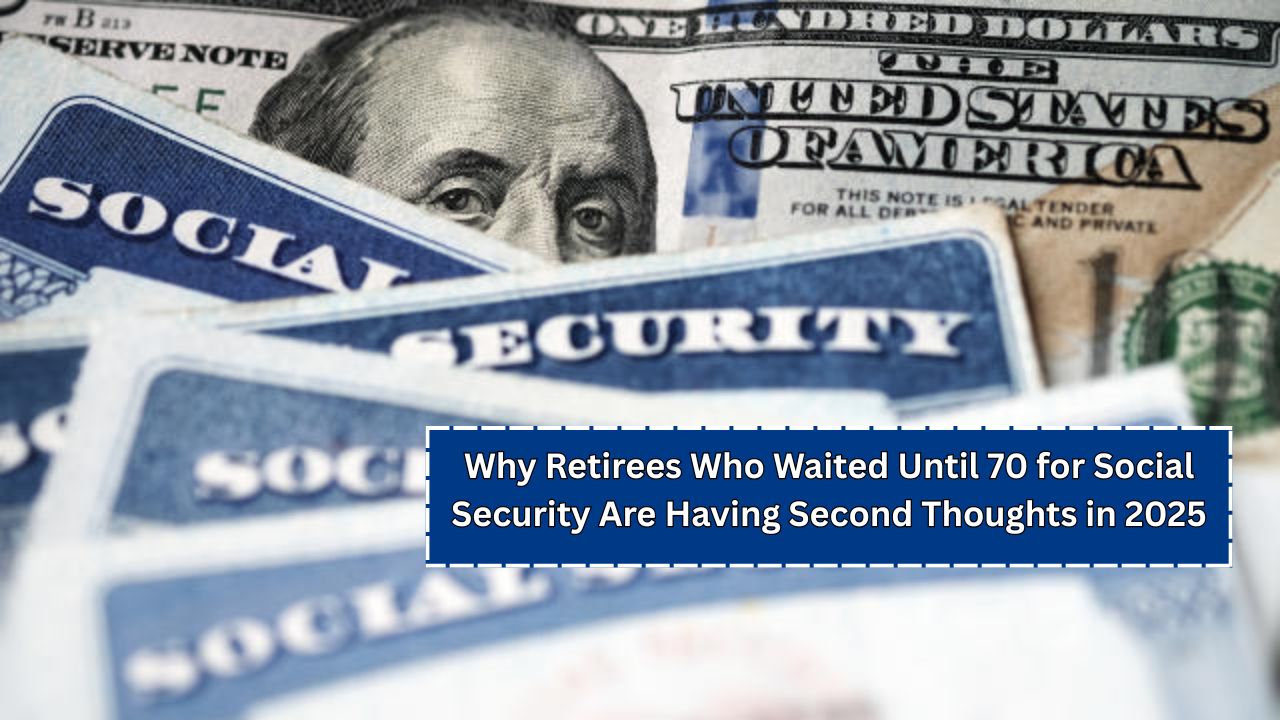For decades, Americans have been told that delaying Social Security benefits until age 70 is the smart financial move. After all, each year of delay boosts your monthly check by about 8% due to delayed retirement credits. But for some retirees, the decision to wait has led to disappointment — and even regret.
Though the logic of maximizing benefits on paper is sound, real-life circumstances don’t always follow economic models. Health issues, financial needs, and unexpected life changes can make the wait for benefits feel less like a wise strategy and more like a missed opportunity.
Why Some Retirees Regret Waiting Until 70
1. Health Challenges Reduced Time to Enjoy Benefits
One of the most common reasons for regret among those who delayed benefits is declining health. While waiting until 70 can maximize monthly payments, that strategy assumes a longer lifespan. But many retirees face health complications that limit mobility, independence, or even life expectancy.
“I thought I’d be hiking, traveling, and enjoying retirement with extra income,” one retiree told GoBankingRates. “But by the time I hit 70, I’d already had two surgeries, and I just don’t have the energy to enjoy what I planned.”
According to data from the Centers for Disease Control and Prevention (CDC), the average life expectancy in the U.S. was 76.4 years in 2021. That leaves limited time to benefit from higher payments if one waits until 70.
2. Immediate Financial Needs Were Overlooked
Delaying benefits means forgoing income between age 62 (the earliest claiming age) and 70. For retirees without a large nest egg, this can create a financial strain.
Some had to withdraw heavily from their 401(k)s or IRAs to cover living expenses, depleting savings they had hoped would last longer. Others couldn’t travel or spend as freely in their mid-60s — the years when they felt healthier and more active.
A report by the Social Security Administration outlines the pros and cons of delaying benefits but acknowledges that personal financial needs can make earlier claiming more appropriate.

3. Spousal Benefit Considerations Were Missed
Delaying benefits can have unintended consequences on spousal benefits. If a retiree is the higher earner and delays their claim, the lower-earning spouse might also have to wait to receive full benefits based on the higher earner’s record.
This often creates tension, particularly if the spouse had lower lifetime earnings and depends more on Social Security. In some cases, couples found themselves regretting the financial bottleneck created by the decision to delay.
4. Economic and Policy Uncertainty Loomed Large
There is growing anxiety around the long-term solvency of the Social Security system. According to the 2024 Trustees Report, the trust fund for retirement benefits could be depleted by the mid-2030s, resulting in a potential benefit reduction of about 20% if no legislative action is taken.
This uncertainty has led some retirees to question whether waiting until 70 — and collecting for fewer years — was wise. They worry they may have missed out on several years of guaranteed income in a more stable environment.
5. Working Longer Wasn’t Always Feasible
Many Americans plan to work well into their 60s while delaying Social Security. But that plan can fall apart quickly due to layoffs, age discrimination, caregiving responsibilities, or burnout.
The U.S. Bureau of Labor Statistics reports that older workers face more challenges finding new employment after job loss. For retirees who counted on income from a job while waiting until 70, early job loss meant either dipping into savings or struggling financially.
Things to Consider Before Delaying Social Security
While the idea of waiting until 70 might be ideal for those in excellent health with sufficient income, others may benefit from a more customized approach. Here are key questions to ask:
- Do you have enough savings to comfortably wait?
- What is your family history and personal health outlook?
- Does your spouse depend on your Social Security record?
- Would earlier payments allow you to enjoy retirement more actively?
- Are you willing to assume the risks of policy or economic shifts?
It’s worth speaking to a qualified financial advisor or visiting SSA.gov to run personalized scenarios. You can also access retirement calculators on sites like AARP.
Final Thoughts
Claiming Social Security at 70 can be the right move for many—but not all. Personal circumstances, health, finances, and even values should shape the decision more than standard financial models. For retirees who’ve already delayed and now feel regret, it’s not necessarily too late to make the most of the years ahead with smart budgeting and supplemental income strategies.
This article has been carefully fact-checked by our editorial team to ensure accuracy and eliminate any misleading information. We are committed to maintaining the highest standards of integrity in our content.

Outside of work, he enjoys playing chess, following cricket, and writing short stories. His commitment to integrity and in-depth analysis strengthens OTE News’ mission of providing trustworthy journalism.




